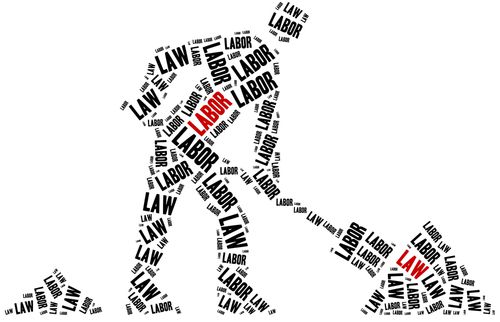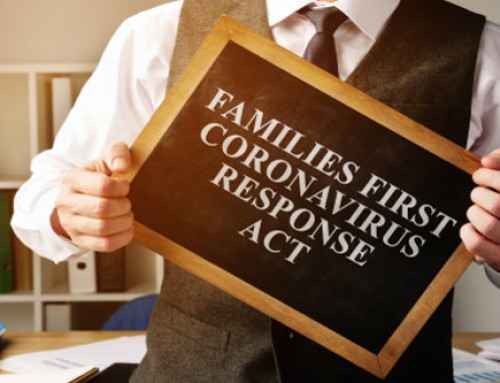In the last couple of months, the National Labor Relations Board (NLRB) took action on two matters that affect private-sector employers. In the first, the NLRB decided the case of Purple Communications, Inc., in which it limited the ability of employers to place restrictions on employees’ personal use of employer-provided email. The second matter was the issuance of final rules governing union elections. The new rules streamline the election process, require employers to provide new information, and significantly shorten the time from petition to election. Importantly, these rules impact all private employers — whether the workforce is unionized or non-union.
Employee Use of E-mail
Since 2007, the NLRB has permitted employers to prohibit personal use by employees of its email system as long as it did not do so in a discriminatory manner. In other words, it was unlawful to ban only union-related emails, but the employer could ban all personal use of work email. On December 11, 2014, the NLRB changed that rule by issuing its decision in Purple Communication, Inc.
The NLRB’s new rule places significant restrictions on employers’ ability to limit personal use of its email systems. In general, the NLRB will now presume that employees who are allowed by the employer to use work email for work purposes also have a right to use work email for purposes of organizing (that is, forming a union), or to otherwise discuss with coworkers and others their wages, hours and working conditions (often called “concerted activity”). To enforce limits on employees’ ability to use email for such purposes, an employer must prove that special circumstances require the limits in order to maintain production or discipline. Further, the limits must be no more than necessary to meet special circumstances. Therefore, a total ban on non-work use of email will rarely be upheld.
This decision has a profound impact on private-sector employers. While employers remain free to monitor employees’ use of work email, they may not enforce a ban on non-work use of work email. Further, employers may not increase or alter the way they monitor email in response to an organizing campaign or other concerted activity. Employers can require that non-work email use occurs during non-working time, but this is unlikely to have any real impact since most employers allow breaks of some sort during the workday. Importantly, the decision does not require employers to provide employees with email access. Thus, an employer could decide not to give work email accounts to its non-management employees. While this may work for some employers, for many it is likely to be impractical.
“Quickie” Election Rules
The new election rules mean employers have even less time to prepare for an election. Currently, employers who receive an election petition may challenge the propriety of an election and of who may participate in the election prior to the election itself taking place. Employers also have the opportunity to submit written briefs following the pre-election hearing. Elections are often, but not always, delayed to allow an employer the opportunity to challenge the NLRB regional director’s decision to go forward with an election.
Beginning April 14, 2015, the process will change significantly. A summary of the new rules is below.
Pre-election hearings will now be scheduled within 8 days of the employer receiving the notice of election. No later than the business day before the hearing, the employer must submit a statement of position form, on which the employer must set out all of the issues it may raise at the hearing. The employer will not be allowed to litigate any issues not raised in the statement of position. This gives an employer served with notice only an extremely short window in which to identify all issues that it will need to raise at the hearing.
Parties may request to submit briefs after the pre-election hearing, but briefs will only be allowed if the regional director determines they are necessary. This means that employers must have their complete legal argument for their position at the hearing ready to present orally as well as being prepared to present witnesses and evidence in support of their position. This can be a massive task. Imagine getting sued and then having to try your case just 8 days later.
A list of prospective voters must be submitted one business day before the pre-election hearing. The final voter list must be submitted within 2 days of the regional director’s decision and direction of election and must include phone numbers and personal email addresses of employees, if available.
Issues regarding eligibility to vote of individuals or small groups will now be dealt with after the election, and only if the issue could have a determining impact on the election.
Elections will not be delayed by an employer’s request for board review of the regional director’s decision and direction of election.
The long and short of the rules is that employers will have no time to mount an effective “vote no” campaign, and will have almost no time to prepare witnesses, evidence, and legal arguments for their position prior to the pre-election hearing.
What Should South Carolina Employers Do?
Employers that allow non-supervisory employees access to email should consider whether that access is necessary. If non-supervisory email access is not necessary, the employer should consider removing it. Where that is not practical or desirable, employers should review their policies on work email usage to ensure that they do not violate the NLRB’s new rules. Employers with a total ban on non-work use of work email will need to revisit those policies or prepare in advance the necessary support for why the total ban is necessary to maintain production or discipline. Employers with less than total bans that still limit non-work email use will also need to be able to articulate and provide evidence of the need for such limits. In other words, the policy needs to be crafted or revised with the legitimate business need for the limit on personal email use in mind. Employers will also need to revisit their policies and justifications periodically to ensure they are still valid.
Employers that need or want to monitor employees’ work email should determine what needs to be monitored and start getting that in place. In the middle of an organizing campaign is the wrong time to start monitoring email. Part of the monitoring should include notice to the employees that work emails are monitored. Employers also need to be aware that they may not “spy” on employees suspected of organizing. In other words, whatever monitoring the employer does needs to be uniform and not targeted at discovering or gathering information on organizing activity.
All employers need to identify which employees are statutory supervisors (that is, those that are exempt from the National Labor Relations Act) and have witnesses, evidence, and legal arguments for their supervisory status prepared in advance. There will be almost no time for preparation once a petition is filed. Similarly, employers who employ both guards and non-guards need to identify in advance the guard employees and have witnesses, evidence, and legal argument for their status prepared in advance. Employers will also need to update and revisit these preparations from time to time so that they are current. Most importantly, employers should train their managers on effective management styles that do not alienate the workforce. While management training on recognizing union activity is useful and necessary, by the time a manager recognizes such activity, it is often too late. Employees who are respected and have management’s attention are unlikely to have any interest in a union in the first place.
If you have questions about the impact of the NLRB’s new rules on your organization, or about your organization’s obligations under the National Labor Relations Act, please contact your labor management relations lawyer or contact us.






